Course Description
The Protocol Implementation Summit 3.0, hosted by the Washington DC Regional Planning Commission on Health and HIV (COHAH) in collaboration with the Mid-Atlantic AIDS Education Training Center (MAAETC) Howard University-Local Partner Site, is where stakeholders, service providers, policymakers, and community advocates converge to advance the continuum of HIV services in the Washington, DC Eligible Metropolitan Area (EMA). This year’s summit will explore collaboration and innovative considerations for achieving greater health outcomes for Aging Persons with HIV, in addition to, persons born with HIV.
Learning Objectives
- Enhance Collaboration: Engage in discussions aimed at fostering collaboration and coordination across diverse HIV services, placing a specific emphasis on Aging Persons with HIV at every stage of the HIV Care Continuum. Together, we aim to improve the continuum of services, while driving progress toward ending the HIV epidemic.
- Share Stories: Explore strengths and opportunities within the current landscape for HIV Care and Prevention for Aging Persons with HIV, through the lens of local community members. With intentions to learn their experiences and gain insights to inform strategic planning for advancing HIV prevention and care for Aging persons with HIV.
- Innovative Approaches Achieving Greater Health Outcomes for Aging Persons with HIV: Delve into innovative approaches that support greater health outcomes for Aging Persons with HIV; in addition, to those born with HIV. The focus topics for innovation include reducing social barriers and improving opportunity conditions for accessing PrEP and HIV-related services; and incorporating whole-person centered approaches within the healthcare systems across the EMA, ensuring high quality HIV interventions for all individuals.
Join us to help drive meaningful change and collectively advance efforts to end the HIV epidemic in the region; while spotlighting HIV Care and Prevention efforts for Aging Persons with HIV.
RSVP by TBD
Co-hosts and Emcees-
Tei Person-Hall
Founder, TPX
Co-host Positive Voices Podcast
Malachi Stewart
Community Engagement Liaison,
Mayor's Office of LGBTQ Affairs
Co-host of Positive Voices Podcast
Speakers
Dorcas Baker, RN, BSN, ACRN, CDP, MA
Regional Coordinator-MAAETC
Center for Infectious Disease and Nursing Innovation (CIDNI)
Johns Hopkins Local Partner Site
Melvin Cauthen
Community Vice-Chair
COHAH
Lamont Clark
Government Co-Chair
COHAH
Naomi Seiler, JD
Professor, Dept of Health Policy and Management
George Washington University
Rodney K. Lewis, Jr., M.Ed.
Regional Coordinator-MAAETC
Howard University-College of Pharmacy
Howard University Local Partner Site



